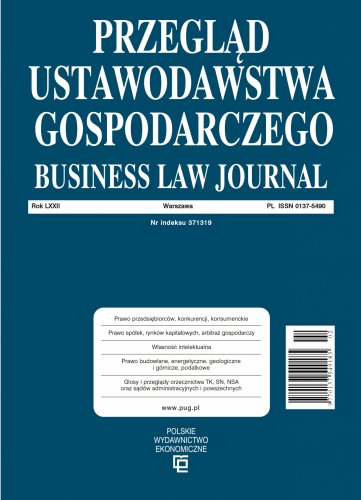Journal of Business Law 07/2022
ISSN: 0137-5490
Pages: 68
Publication date: 2022
Place publication: Warszawa
Binding: paperback
Format: A4
Publication date: 2022
Place publication: Warszawa
Binding: paperback
Format: A4
DOI: 10.33226/0137-5490.2022.7.1
JEL: K34
DOI: 10.33226/0137-5490.2022.7.2
JEL: K
DOI: 10.33226/0137-5490.2022.7.3
JEL: E63, G18, K23
DOI: 10.33226/0137-5490.2022.7.4
JEL: K10, K11, O3
DOI: 10.33226/0137-5490.2022.7.5
JEL: K32
DOI: 10.33226/0137-5490.2022.7.6
JEL: K
DOI: 10.33226/0137-5490.2022.7.7
JEL: K34, K31
| Odbiór osobisty | 0 € |
| Kurier Inpost | 4 € |
| Kurier FedEX | 4 € |
| Inpost Paczkomaty | 4 € |
| Free delivery in Reader's Club | from 47 € |

